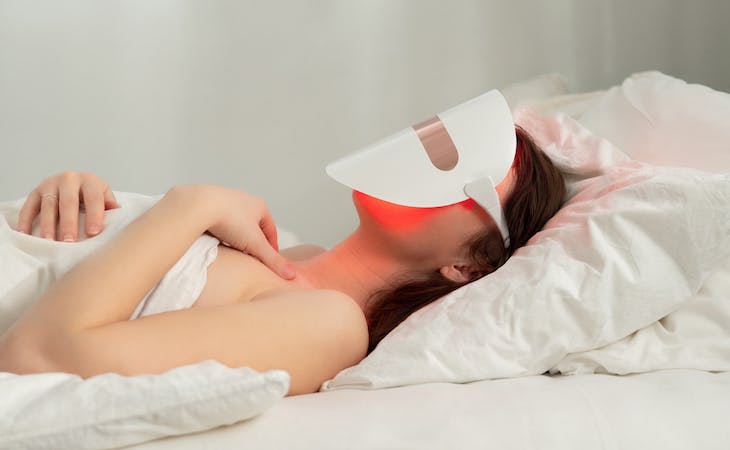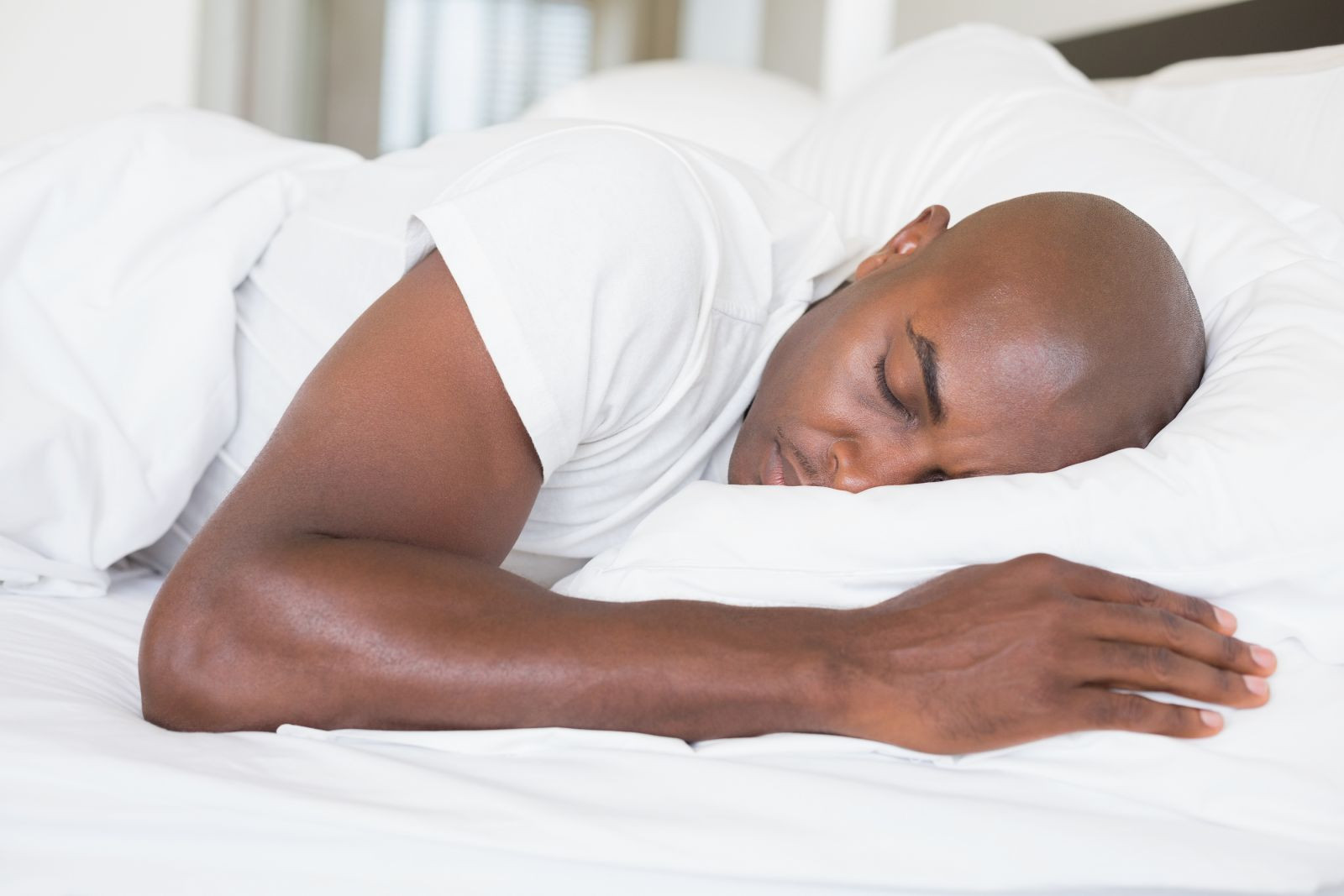Sleep Improvement Therapy - Boost Your Sleep Top Quality
Sleep Improvement Therapy - Boost Your Sleep Top Quality
Blog Article
Efficient Treatment Solutions for Handling Sleep Disorders and Enhancing Relaxed Rest
In the realm of medical care, the administration of sleep problems and the mission for restful rest are critical parts of general well-being. Reliable therapy services supply a diverse method to take on these challenges, varying from cognitive behavioral treatments to holistic practices that advertise leisure and mindfulness. The exploration of different techniques, consisting of the integration of drug and light therapy, opens a world of possibilities in the search of much better rest high quality. As we browse the detailed landscape of sleep conditions and look for to enhance our sleep experience, a much deeper understanding of these treatment services may hold the trick to unlocking a more refreshing and meeting restorative journey.
Cognitive Behavior Modification for Insomnia (CBT-I)
Cognitive Behavior Treatment for Insomnia (CBT-I) is a structured, evidence-based treatment technique that concentrates on resolving the hidden elements adding to sleep disruptions. This sort of treatment intends to customize actions and ideas that aggravate sleeping disorders, eventually promoting healthy sleep patterns. CBT-I normally entails numerous vital parts, consisting of cognitive treatment, rest limitation, stimulation control, and sleep hygiene education.
Cognitive therapy helps individuals identify and transform adverse idea patterns and ideas regarding sleep that may be impeding their capacity to fall or remain asleep. Rest limitation entails restricting the amount of time spent in bed to match the person's real rest duration, consequently increasing sleep effectiveness (sleep therapy). Stimulation control methods help develop a strong organization between the bed and sleep by urging individuals to head to bed only when drowsy and to prevent engaging in stimulating tasks in bed
Additionally, sleep hygiene education focuses on creating healthy rest practices, such as keeping a constant rest routine, developing a relaxing bedtime regimen, and enhancing the sleep setting. By resolving these elements adequately, CBT-I uses an efficient non-pharmacological intervention for managing sleep problems and improving overall sleep quality.
Sleep Health Practices
Having developed the structure of cognitive restructuring and behavior alterations in attending to sleeping disorders with Cognitive Behavioral Therapy for Insomnia (CBT-I), the focus now changes in the direction of exploring crucial Rest Health Practices for maintaining optimum sleep high quality and total well-being.
Sleep hygiene methods include a variety of routines and ecological factors that can considerably affect one's capacity to go to sleep and remain asleep throughout the night. Consistent sleep and wake times, creating a relaxing bedtime routine, and enhancing the rest environment by keeping it dark, peaceful, and cool are critical components of great rest health. Limiting exposure to screens before bedtime, preventing energizers like high levels of caffeine close to bedtime, and taking part in routine exercise throughout the day can likewise advertise much better sleep top quality.
Additionally, practicing leisure strategies such as deep breathing workouts or reflection before bed can help relax the mind and prepare the body for rest. By including these sleep hygiene techniques right into one's everyday routine, individuals can establish a healthy and balanced rest pattern that supports restful rest and overall health.
Leisure Methods and Mindfulness
Applying leisure strategies and mindfulness practices can play a crucial duty in fostering a sense of calmness and advertising top quality rest. Additionally, directed imagery can assist move individuals to a relaxed place in their minds, helping in anxiety reduction and improving rest quality.
Mindfulness practices, such as meditation and yoga, are likewise efficient in advertising relaxation and enhancing rest. Mindfulness urges people to remain existing in the minute, allowing go of stress over the past or future. By incorporating these practices right into a going to bed regimen, individuals can indicate to their bodies that it is time to loosen up and prepare for rest. Generally, incorporating leisure strategies and mindfulness hypopnoea techniques can dramatically add to managing sleep disorders and enhancing total rest top quality.

Medication Options for Rest Disorders
After discovering leisure techniques and mindfulness practices as non-pharmacological interventions for enhancing sleep high quality, it is important to consider medicine options for people with rest disorders. In cases where lifestyle modifications and therapy do not offer adequate alleviation, medicine can be a beneficial device in managing sleep disturbances.
Generally suggested medications for sleep disorders include benzodiazepines, non-benzodiazepine hypnotics, antidepressants, and melatonin receptor agonists. Antidepressants, such as trazodone, can be advantageous for individuals with co-occurring clinical depression and rest disruptions - insomnia counseling.
It is essential for people to speak with a doctor to figure out the most ideal medicine option based upon their certain sleep problem and medical history.
Light Therapy for Body Clock Guideline
Light therapy, likewise called photo-therapy, is a non-invasive therapy method made use of to regulate circadian rhythms and boost sleep-wake cycles. This therapy entails exposure to intense light that imitates all-natural sunlight, which aids to reset the body's biological rhythm. By subjecting people to particular wavelengths of light, generally in the early morning or evening relying on the wanted impact, light treatment can successfully adjust the body clock to advertise wakefulness throughout the day and enhance restful rest in the evening.
Study has shown that light therapy can be specifically useful for people with body clock disorders, such as delayed rest stage disorder or jet lag. It can additionally be useful for those experiencing seasonal depression (SAD), a type of depression that usually takes place throughout the winter season when all-natural light direct exposure is reduced. Light therapy is typically well-tolerated and can be utilized in combination with other treatment methods for sleep conditions to enhance results and boost total rest top quality.
Verdict
To conclude, effective therapy services for taking care of rest disorders and improving relaxed sleep include Cognitive Behavior modification for Sleeplessness (CBT-I), rest hygiene methods, leisure strategies and mindfulness, drug choices, and light therapy for body clock policy. These techniques can assist people boost their rest quality and total wellness. It is very important to seek advice from a medical care service provider to identify one of the most ideal technique for dealing with sleep concerns.
As we navigate the intricate landscape of rest conditions and seek to boost our rest anonymous experience, a deeper understanding of these treatment options may hold the trick to opening a more relaxing and fulfilling corrective journey.
Rest limitation involves restricting the amount of time invested in bed to match the individual's actual rest duration, therefore boosting sleep performance. Regular sleep and wake times, producing a relaxing bedtime regimen, and optimizing the sleep setting by maintaining it dark, quiet, and cool are crucial elements of good rest hygiene. Light therapy is usually well-tolerated and can useful site be utilized in combination with other therapy methods for rest disorders to maximize end results and boost general sleep top quality.

Report this page